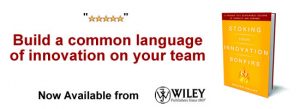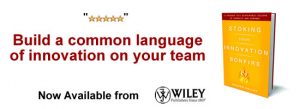Midden Innovation
 When reading about archaeology, the term “midden†appears with great frequency. For lack of a better term, a midden is a trash heap that contains a vast assortment of the debris or spoils of civilization, and it is astounding the amount of information that archaeologists can discern from these discarded items. Kitchen middens, for instance, contain evidence of the food consumed by an ancient civilization (bones, shells, excrement) and, through the use of carbon dating technology, archaeologists can identify shifts in the diet of human beings in a certain area, permitting the scientist to discern climate patterns. For civilizations that remained in place over extended periods of time, the content of the middens builds up over time, layer upon layer, which can show the evolution of diets, such as a shift from one crop to another as growing conditions changed due to changes in climate.
When reading about archaeology, the term “midden†appears with great frequency. For lack of a better term, a midden is a trash heap that contains a vast assortment of the debris or spoils of civilization, and it is astounding the amount of information that archaeologists can discern from these discarded items. Kitchen middens, for instance, contain evidence of the food consumed by an ancient civilization (bones, shells, excrement) and, through the use of carbon dating technology, archaeologists can identify shifts in the diet of human beings in a certain area, permitting the scientist to discern climate patterns. For civilizations that remained in place over extended periods of time, the content of the middens builds up over time, layer upon layer, which can show the evolution of diets, such as a shift from one crop to another as growing conditions changed due to changes in climate.
The concept of innovators as archaeologists digging into corporate middens first appeared to me when a friend at dinner lamented about how recent negative developments at his company seemed to be a repeat of previous instances where the company went through a downturn and engaged in restructuring to fix the problem. In other words, this mid-sized company operated in a way that started to drive poor performance results, which lead to a need for major changes, and the process continued to repeat itself every few years. As we were talking, I started to wonder how innovation could come into play in these types of situations. I thought about the concept of “shelfware,†which is a pejorative term that is used to describe a detailed consulting report that costs a lot of money and is read by executives then ends up on a shelf, never to be reviewed again as the company continues to operate in the same way as before.
If you combine the notion that companies typically repeat past behaviors with the realization that any good-sized firm is likely to have a historical record of assessments of its previous issues in the form of old consulting reports or shelfware, then a possible source for innovation inspiration could be an examination of that shelfware. Like the archaeologist sifting through the detritus of a past civilization, the innovator reviewing past consulting reports may identify patterns or themes that are worthy of additional investigation in trying to help a company find new, more efficient ways of operating or develop new products and services. The shelfware assessment will represent a snapshot in time of where that company was headed, and by comparing that information with a quick scan of current operations, the innovator might be able to identify areas worth pursuing that could yield valuable insights. It is counter-intuitive to think that someone focused on innovation would spend time reading through a years-old assessment and set of recommendations for organizational improvement, but my guess is that such an activity could help a company break the cycle of repeating past mistakes.
image credit: elliecrocker.com

Wait! Before you go…
Choose how you want the latest innovation content delivered to you:
- Daily — RSS Feed — Email — Twitter — Facebook — Linkedin Today
- Weekly — Email Newsletter — Free Magazine — Linkedin Group
 Scott Bowden works on Innovation Programs for IBM Global Services.
Scott Bowden works on Innovation Programs for IBM Global Services.
NEVER MISS ANOTHER NEWSLETTER!
LATEST BLOGS
The Evil Downside of Gift Cards
This past holiday season I saw probably one too many articles trumpeting the value of gift cards to retailers and how they are a great thing for retailers. My skeptic side starts coming out as I see article after article appear, and I have to start asking “Is the increasing prevalence of gift cards as a holiday gift (primarily Christmas) a good thing for retailers?”
Read MoreWhy the iPhone will not succeed – Yet
The new Apple iPhone is set to launch on June 29, 2007 and the press and investors are making it a darling. Investors have run Apple’s stock price up from about $85 per share before its announcement to $125 per share recently, but the iPhone still will not succeed – at least not yet.
Read More


